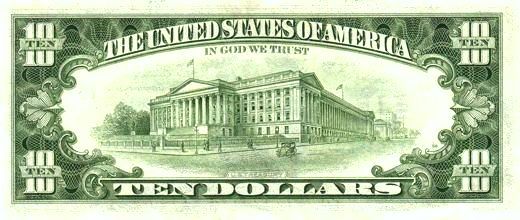U.S. Treasury Continues Sell-Off of GM Shares, UAW Sells Warrants
Continuing its divestment of the shares it obtained in General Motors for bailing out the automaker in 2009, the United States Treasury told Congress yesterday that it has sold $876.9 million dollars worth of GM stock last month, somewhere between 23 and 26 million shares, based on the trading prices during July. By those calculations, the U.S. government still holds about 136 million shares of GM, which closed yesterday at $35.98. At the rate that Treasury is selling off its GM shares, the government’s equity will be completely divested by early 2014. The government originally held a 61% stake in GM following the $49.5 billion bailout, over 500 million shares. By selling some of those shares, Treasury has recouped $34.6 billion of the $49.5 billion.
Also yesterday, the UAW’s health care trust finalized it’s sale of 45.4 million warrants that allow the holder to buy GM stock at a price of $42.31 before the end of 2015. The warrants were sold for $171 milion. According to the Detroit News’ David Shepardson, they were sold in a “modified Dutch auction” and can now be purchased on the open market. Shepardson told TTAC that large institutional investors were the likely buyers. At the offered price of $3.85 per warrent, GM stock would have to rise over $12 a share from its current price for it to be profitable should the purchasers exercise their rights. Since the UAW had no problem selling the warrants, it stands to reason that at least some of those large investors think that GM, or buying the warrants, which can be traded, is a good bet.
More by TTAC Staff


































Comments
Join the conversation
I've learned something from this thread, namely that allowing anonymous Aussies on the internet to manage US policy would be a very bad idea.
For those against the federal help of GM and Chrysler. Unless you have a Wayback machine that the planet will fit inside... Get over it.
@BAF0 - Can you give specific examples of imports hit with a 53.5% tax? I've seen as much as 2.5%. Anything else is safety and other regulations related and all cars must meet these, including domestics. The costs of meeting regs is spread out across the platform's entire production run. If it's a niche vehicles, yeah it gets real expensive, but that's true of domestic niche vehicles too. Popular Japanese autos easily meet standards and regulations for 3 or more different markets with individual standards. It's a non issue if it's something that sells. Yeah, shocking. It takes money to make money.
The "truck" definition for CAFE represents about 1/2 the US market, the majority of which are passenger vehicles. The "truck" definition for the light truck tariff represents 11% of the market. The tariff does not apply to a vehicle assembled (including CKD) anywhere in NAFTA. GM Australia (Holden's) share of GM can be summarized: Holden employs 2.3%, sells 1.2% and builds 0.6% The operation loses a huge sum relative to its size despite massive and on-going government assistance. It has no chance to stand on its own as anything more than a sales organization.